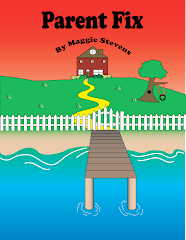A mistake is never a mistake if you learn something.
How many of you actually believe that statement?
I do...especially after I have done something stupid. To take away the guilt, I vow I will never do that again. It becomes a bit more difficult to have a strong belief in that statement when it comes to the nitty gritty of parenting children.
Kids are bound to make many mistakes throughout their lives. That is one of the sureties in life like death and taxes. Making mistakes is one of the best ways children learn. Add in the natural consequence that accompanies the mistake and learning through mistakes probably teaches great lessons that are never forgotten. If you were the child who took a piece of Bubble Yum from the store, put it in your pocket and had mom accompany you back to the store with an apology and money for the manager, you will probably never steal again.
So the next time your child makes a minor faux pas, try to remember that is what he is supposed to be doing...making mistakes and then learning from those mistakes. Step number one in parenting through mistakes is acknowledging that your child is going to make mistakes. As much as we would all like to have children who are mistake free, our children need to learn life lessons and mistake-making it one of the best ways for them to do that. As I was raising my brood, I found it was extremely helpful to watch the mistakes made by other people’s children that were a few years ahead of my children. Not only does this make you feel better about your “special”child, but it prepares you for the possible mistakes your child might make when they reach that age. Acknowledging that your child will make mistakes keeps your child’s development in perspective. It also helps you to be a calm, more patient parent.
The second step in parenting through mistakes is to pre-plan your response to the mistake. None of us as parents want to think that our child will do the same thing as that awful ‘Johnny down the street’, but it is better to have a plan in place than be caught dumbfounded. Talk to other parents. Find out what solutions worked for them. Take a look at the outcome of their kids. If you don’t like what you see, I would suggest you find another parent with another solution. It is important to remember that no one’s kids are perfect and your best ally will be another parent who has struggled with some form of the same issue. Those parents are out there. Search for them.
Your reaction when you discover the mistake makes all the difference. Which leads us into the third step.
Parents often get hung up on the mistake instead of realizing that the way they handle the problem adds to the lesson their chid will learn.
Let me give you a bad example. Lynda witnessed her daughter Julie hitting her friend. Lynda grabbed her daughter, spanked her multiple times while yelling, “Julie, we don’t hit!” What has Lynda taught her child? We do hit in this family. Julie will most likely continue to hit in a variety of forms throughout her life. In the future, she will disguise it so her mother will not witness the attack.
Lets change that negative into a positive. How should Lynda have handled this situation? Lynda should have figured out why Julie was hitting her friend. Together, mother and daughter could have come up with a more appropriate solution.
Here is the good example: Lynda walks up behind Julie putting her arms around her gently and hugging her. This not only calms her daughter but stops the hitting. “Julie, your friend wants to play with your doll. Do you think you can share for a few minutes?” If Julie does not think she can do this, Mom can help her find another toy to share. Or mom can make it a game to time how long each girl gets to play with the doll. It is all about negotiation until both children are happy. The lesson Julie is learning is how to get along with friends. Which will become a great asset in Julie’s future.
In the future, don’t get mad at your children when they make a mistake. It does not show you are a bad parent when a mistake is made. Show them you understand and care enough to help them through it. Let your children make mistakes and learn from them.
Thursday, June 30, 2011
Subscribe to:
Posts (Atom)




